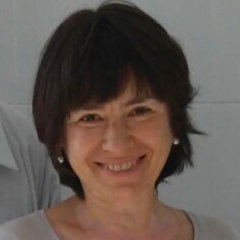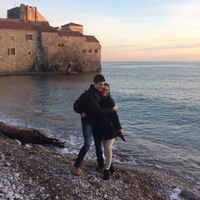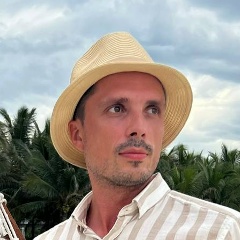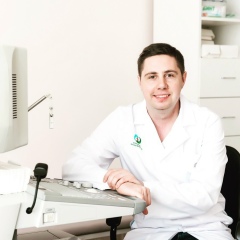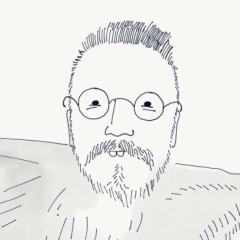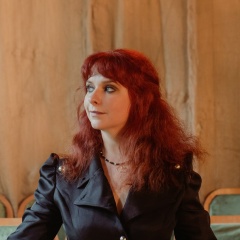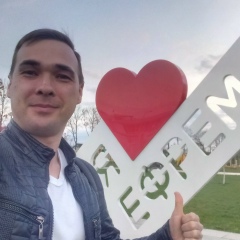“.. в первую очередь науку стоит популяризовать хотя бы учёным и студентам.”
Уже несколько лет в России наблюдается всплеск популяризации науки широким (или не очень) массам населения. Между тем, я убеждён, в первую очередь науку стоит популяризовать хотя бы учёным и студентам, потом уже и до народных масс волна дойдёт.
В чём это может состоять? Важная, если не сказать, экзистенциальная проблема для студентов и молодых учёных — чем заниматься. У меня есть ощущение, что многие занимаются скучной ерундой. Традиционный подход заключается в том, что научный руководитель даёт студенту или аспиранту задачу. Это хорошо, но студент должен уметь находить задачи и сам — чем раньше, тем лучше. Тем более в отсутствие адекватных научных руководителей.
Средств для этого у научного сообщества несколько: конференции и доклады. К сожалению, на них рассказывают то, что уже сделано, а не то, что сделать было бы интересно. О последнем можно узнать в перерывах, в общении с коллегами. Networking skills, безусловно, полезны, но я в них никогда не был силён. А многие и на конференцию поехать не могут.
Откуда ещё? В журналах тоже пишут о том, что сделано, да и не читают их студенты.
Я предлагаю следующие способы — не новые, конечно. Во-первых, хорошо бы ведущие учёные ездили по России и делали доклады о “возможных” новых задачах и направлениях. Хорошо бы были такие конференции: несколько вводных лекций, а потом перечень тем: вот, можно этим заняться, это интересно и нужно, это вот попроще, а это вот сложно, но если получится — очень круто будет. Какая вообще радость слушать о том, что уже сделано?
Во-вторых: периодика с задачами. Например, в Arnold Mathematical Journal можно послать problem contribution: интересные вопросы или гипотезы, с мотивировкой. Есть ли такое в физике, биологии, лингвистике?
В третьих, организация заочных олимпиад (конкурсов). Я вот сделал олимпиаду по топологии, http://mathcenter.spb.ru/nikaan/olympiad/olympreport.pdf В ней поучаствовало не очень много людей, отчасти потому что алгебраическую топологию даже и не преподают на математических факультетах в России. Я уверен, можно придумать заочный конкурс по химии, биологии, лингвистике — с исследовательскими задачами, которые можно решить за месяц. Это не обязательно должны быть новые задачи — но такие, на которых можно вкусить радость открытия новой области, чтения литературы, настоящей научной работы. Популяризация — это не когда все читают и слушают, а когда сами делают, хоть и в полуигровых условиях.
Уже несколько лет в России наблюдается всплеск популяризации науки широким (или не очень) массам населения. Между тем, я убеждён, в первую очередь науку стоит популяризовать хотя бы учёным и студентам, потом уже и до народных масс волна дойдёт.
В чём это может состоять? Важная, если не сказать, экзистенциальная проблема для студентов и молодых учёных — чем заниматься. У меня есть ощущение, что многие занимаются скучной ерундой. Традиционный подход заключается в том, что научный руководитель даёт студенту или аспиранту задачу. Это хорошо, но студент должен уметь находить задачи и сам — чем раньше, тем лучше. Тем более в отсутствие адекватных научных руководителей.
Средств для этого у научного сообщества несколько: конференции и доклады. К сожалению, на них рассказывают то, что уже сделано, а не то, что сделать было бы интересно. О последнем можно узнать в перерывах, в общении с коллегами. Networking skills, безусловно, полезны, но я в них никогда не был силён. А многие и на конференцию поехать не могут.
Откуда ещё? В журналах тоже пишут о том, что сделано, да и не читают их студенты.
Я предлагаю следующие способы — не новые, конечно. Во-первых, хорошо бы ведущие учёные ездили по России и делали доклады о “возможных” новых задачах и направлениях. Хорошо бы были такие конференции: несколько вводных лекций, а потом перечень тем: вот, можно этим заняться, это интересно и нужно, это вот попроще, а это вот сложно, но если получится — очень круто будет. Какая вообще радость слушать о том, что уже сделано?
Во-вторых: периодика с задачами. Например, в Arnold Mathematical Journal можно послать problem contribution: интересные вопросы или гипотезы, с мотивировкой. Есть ли такое в физике, биологии, лингвистике?
В третьих, организация заочных олимпиад (конкурсов). Я вот сделал олимпиаду по топологии, http://mathcenter.spb.ru/nikaan/olympiad/olympreport.pdf В ней поучаствовало не очень много людей, отчасти потому что алгебраическую топологию даже и не преподают на математических факультетах в России. Я уверен, можно придумать заочный конкурс по химии, биологии, лингвистике — с исследовательскими задачами, которые можно решить за месяц. Это не обязательно должны быть новые задачи — но такие, на которых можно вкусить радость открытия новой области, чтения литературы, настоящей научной работы. Популяризация — это не когда все читают и слушают, а когда сами делают, хоть и в полуигровых условиях.
“.. first of all, science should be popularized at least to scientists and students.”
For several years in Russia there has been a surge in the popularization of science to wide (or not so) masses of the population. Meanwhile, I am convinced that, first of all, science should be popularized at least for scientists and students, and then the wave will reach the masses.
What can it be? An important, if not to say existential problem for students and young scientists is what to do. I have a feeling that many are engaged in boring nonsense. The traditional approach is that the supervisor gives the student or graduate student the task. This is good, but the student should be able to find tasks himself - the sooner the better. Especially in the absence of adequate scientific leaders.
The scientific community has several means for this: conferences and reports. Unfortunately, they tell what has already been done, and not what it would be interesting to do. You can learn about the latter in breaks, in communication with colleagues. Networking skills are definitely useful, but I have never been strong in them. And many cannot go to the conference either.
Where else? The journals also write about what has been done, and the students do not read them either.
I suggest the following methods - not new, of course. Firstly, it would be good for leading scientists to travel around Russia and make reports on “possible” new tasks and directions. It would be nice if there were such conferences: a few introductory lectures, and then a list of topics: here, you can do it, it’s interesting and necessary, it’s simpler, and it’s difficult, but if it works out, it will be very cool. What a joy to listen to what has already been done?
Secondly: periodicals with tasks. For example, in the Arnold Mathematical Journal one can send a problem contribution: interesting questions or hypotheses, with motivation. Is there such a thing in physics, biology, linguistics?
Thirdly, the organization of correspondence Olympiads (competitions). I've done an olympiad on topology, http://mathcenter.spb.ru/nikaan/olympiad/olympreport.pdf Not a lot of people participated in it, in part because algebraic topology is not even taught in the mathematical faculties in Russia. I am sure you can come up with a correspondence contest in chemistry, biology, and linguistics - with research tasks that can be solved in a month. It does not have to be new tasks - but those on which you can taste the joy of discovering a new field, reading literature, and real scientific work. Popularization is not when everyone reads and listens, but when they do it themselves, albeit in half-game conditions.
For several years in Russia there has been a surge in the popularization of science to wide (or not so) masses of the population. Meanwhile, I am convinced that, first of all, science should be popularized at least for scientists and students, and then the wave will reach the masses.
What can it be? An important, if not to say existential problem for students and young scientists is what to do. I have a feeling that many are engaged in boring nonsense. The traditional approach is that the supervisor gives the student or graduate student the task. This is good, but the student should be able to find tasks himself - the sooner the better. Especially in the absence of adequate scientific leaders.
The scientific community has several means for this: conferences and reports. Unfortunately, they tell what has already been done, and not what it would be interesting to do. You can learn about the latter in breaks, in communication with colleagues. Networking skills are definitely useful, but I have never been strong in them. And many cannot go to the conference either.
Where else? The journals also write about what has been done, and the students do not read them either.
I suggest the following methods - not new, of course. Firstly, it would be good for leading scientists to travel around Russia and make reports on “possible” new tasks and directions. It would be nice if there were such conferences: a few introductory lectures, and then a list of topics: here, you can do it, it’s interesting and necessary, it’s simpler, and it’s difficult, but if it works out, it will be very cool. What a joy to listen to what has already been done?
Secondly: periodicals with tasks. For example, in the Arnold Mathematical Journal one can send a problem contribution: interesting questions or hypotheses, with motivation. Is there such a thing in physics, biology, linguistics?
Thirdly, the organization of correspondence Olympiads (competitions). I've done an olympiad on topology, http://mathcenter.spb.ru/nikaan/olympiad/olympreport.pdf Not a lot of people participated in it, in part because algebraic topology is not even taught in the mathematical faculties in Russia. I am sure you can come up with a correspondence contest in chemistry, biology, and linguistics - with research tasks that can be solved in a month. It does not have to be new tasks - but those on which you can taste the joy of discovering a new field, reading literature, and real scientific work. Popularization is not when everyone reads and listens, but when they do it themselves, albeit in half-game conditions.
У записи 20 лайков,
0 репостов,
501 просмотров.
0 репостов,
501 просмотров.
Эту запись оставил(а) на своей стене Никита Калинин













